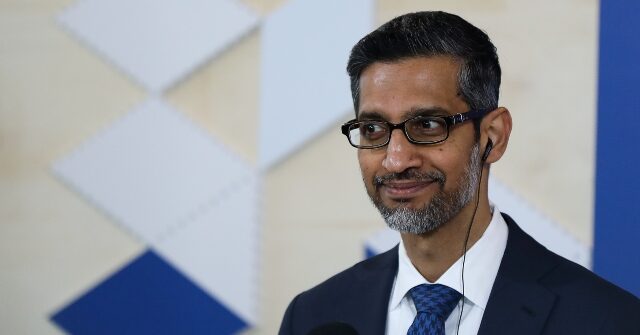In a federal court hearing on Wednesday, Google CEO Sundar Pichai argued that the government’s proposed measures to address the company’s illegal monopoly in online search would severely impact its ability to innovate and invest in new technologies.
The New York Times reports that testifying before Judge Amit P. Mehta of the U.S. District Court for the District of Columbia, Sundar Pichai, Google’s CEO, made his case against the government’s aggressive proposals to remedy the company’s illegal monopoly in online search. Last year, Judge Mehta ruled that Google had violated the law to maintain its search monopoly, and the current three-week remedy phase aims to determine the measures that will be implemented to address this illegal behavior.
Pichai, the second witness called by the company, stated that the government’s proposal, which includes forcing Google to sell its popular Chrome web browser and share data with rivals, would lead to fewer investments in new technology. He argued that if the company were required to share the benefits of its research and development with competitors for a fee, it would become unviable to continue investing in innovation the way it has for the past three decades.
The landmark hearing, which could reshape the power dynamics in Silicon Valley, comes at a time when tech giants are competing to develop AI-powered internet products. New restrictions on Google’s business could bolster its rivals’ efforts while hindering its own.
The Google search case is a significant test of the U.S. government’s efforts to curb the immense power tech giants hold over online commerce, communications, and information. It follows a series of antitrust lawsuits against other major tech companies, such as Meta, Apple, and Amazon.
During the 2023 trial, government lawyers argued that Google had locked out other search engines by paying companies like Apple, Samsung, and Mozilla billions of dollars to be the default search engine in web browsers and on smartphones. Pichai, who helped develop Chrome, bristled when a government lawyer questioned his ability to predict how a future owner of the browser would handle cybersecurity, stating that his deep knowledge of the space allowed him to speak on the matter.
The government also seeks to compel Google to share its search results with rivals, granting them access to data about user searches and clicked websites. Pichai called this proposal a “de facto divestiture” of the company’s intellectual property, which would enable competitors to reverse engineer every aspect of Google’s technology stack.
In contrast, Google’s proposal is more narrow, suggesting that it should be allowed to continue paying other companies for prime placement of its search engine, with some deals up for annual renegotiation and more freedom for smartphone manufacturers in deciding which Google apps to install on their devices.
Read more at the New York Times here.
Lucas Nolan is a reporter for Breitbart News covering issues of free speech and online censorship.
Read the full article here


